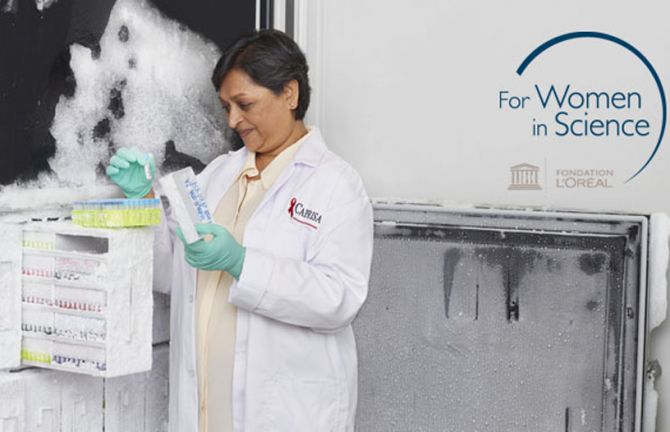



Feature Story
Empowering women to prevent HIV infection in Africa
05 April 2016
05 April 2016 05 April 2016A version of this story was first published on UNESCO.org.
Quarraisha Abdool Karim has been presented with a l’Oréal–UNESCO For Women in Science award for her contribution to the understanding of HIV and for her efforts to empower women to help prevent HIV infection in Africa.
Ms Abdool Karim has worked on HIV research for the past 25 years and her work has provided new insights into how the HIV epidemic spreads and affects adolescent girls and young women in Africa. Her knowledge of the science and the people affected by HIV in her native South Africa, which has the highest number of HIV infections in the world, has reinforced her determination to put HIV prevention in the hands of women, particularly adolescent girls and young women.
In 2002, at the height of AIDS denialism in South Africa, she and her husband cofounded CAPRISA, the Centre for the AIDS Programme of Research in South Africa.
Ms Abdool Karim has undertaken research on an anti-HIV gel for use by women before, during and after sex. In 2010, the CAPRISA 004 study, led by Ms Abdool Karim, showed that a gel containing the antiretroviral medicine tenofovir reduced the risk of HIV infection among women by 39%. Today, she continues to study HIV prevention options that will give women in higher-risk populations sustained protection against HIV.
“Until we have eradicated AIDS by finding a vaccine or a cure, then I think my job is not done,” said Ms Abdool Karim.
The L’Oréal-UNESCO For Women in Science programme was founded in 1998 with a simple aim: to ensure that women are fairly represented at all levels in science. Each year, the programme’s award is presented to five outstanding women researchers in recognition of scientific excellence and their potential for leading the global community in positive, productive directions.
“I would encourage young women who feel passionate about changing the world and making a difference to pursue a career in science,” said Ms Abdool Karim at the French Academy of Sciences, where she was presented with the award.



